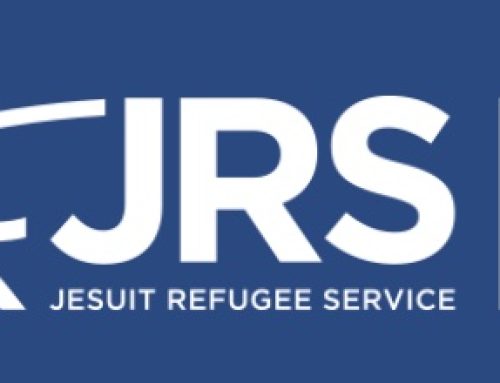Active discussion on alternatives to detention is taking place outside the UK, particularly on how and whether small-scale alternatives to detention pilots could help the governments and civil society organisations understand how they could work. This article is reprinted with a kind permission of the King Baudouin Foundation.
===============================================
Alternatives to detention pilots, European experience – ATD blog 3
Engagement-based migration management: that is what is being trialled by three pilot projects in Bulgaria, Cyprus and Poland supported by the European Programme for Integration and Migration (EPIM), an initiative launched by partners including the King Baudouin Foundation. These projects are demonstrating the effectiveness of this approach, offering a suitable alternative to migrant detention.
A humane alternative to detention of migrants
Detention of migrants is a practice used extensively by authorities across Europe, even though “the use of detention for the purpose of removal should be limited […] and if the application of less coercive measures would not be sufficient,” according to the ‘Return Directive’. The European Programme for Integration and Migration (EPIM), co-created by the King Baudouin Foundation and 25 private foundations, supports three pilot projects in Bulgaria, Cyprus and Poland demonstrating that engagement-based case management is not only less harmful but also more effective than immigration detention and therefore provides a relevant alternative.
Trauma
“For many migrants entering a country without documentation, their first experience is brutal,” says Radostina Pavlova, a legal expert at Voice in Bulgaria Center for Legal Aid. “They are put in a prison-like environment, with no possibility to integrate, and a lot of existing traumas may be aggravated.”
In one example, a young man with health problems was imprisoned for illegally crossing a border. “Previous experience of immigration detention had left him traumatized, and he posed a high risk of absconding on his release from prison before his case could be resolved,” says Eiri Ohtani, who made a mid-term analysis of the pilots in which NGOs explored the potential of community-based alternatives to detention.
Community-based alternatives
This young man received weekly meetings with a case manager, who liaised with a friend and an intermediary from his community to create a stable environment and help him take positive steps to resolve his case.
“This intervention improved his ability to engage with immigration procedures and reduced his risk of absconding. He has remained engaged with the pilot for nine months,” says Ohtani.
Holistic approach
Following an intake interview and a needs assessment, Voice in Bulgaria applied a tailored case management method to migrants who were already in detention or at risk of being detained, supporting them holistically until their case reached a conclusion. Case resolution includes solutions such as regularisation, protection, assisted voluntary return to the home country, etc.
Pavlova: “Our aim is to get their case resolved, with the person informed and supported throughout the process; the authorities’ aim is just to have them returned to their home country.”
European governments
“Though the three countries have very different contexts – different political and legal systems, different pressures, different geographical situations – the similarities between them are striking,” says Ohtani.
She was struck by a consistent message from people she interviewed: “They found detention inhumane, they often didn’t understand why they were being detained, and they were treated so badly that the experience shattered their trust in the authorities.”
Civil society
“Many governments are reluctant to try something new,” she says. “With these pilots, run by civil society organisations, investments are relatively small, and as they are not run by governments, they can be flexible and test out different ideas.”
The NGOs working with migrants can engage with people in a way that governments may not be able to. “They allowed migrants to engage with the immigration process, understand their own situation and take control of it, and restored some of the trust that had been lost,” says Ohtani.
Mid-term analysis
While the pilots have necessarily been small-scale, with a total of 93 people engaged across the three countries, organizers can point to a high level of achievement: 97% of people engaged in the projects stayed to cooperate with case management, including in countries with high overall rates of secondary movement, and holistic case management had a positive impact on resolution in 88% of cases.
And in every case, tailored alternatives to detention led to improved wellbeing for those it set out to support. “We are trying to send a message that there’s a way to manage migration that’s not based on force but on engagement,” says Pavlova. “Not only is this right and humane, but it can also be more effective than the current paradigm of ‘detain and deport’.”
European Commission
In 2018, the European Commission drew inspiration from the engagement-based approach promoted by EPIM and made around €2 million available to Member States interested in exploring cooperation with civil society organisations to implement ATD projects across Europe.
In 2019, the Council of Europe, the European Commission and the European Migration Network have presented concrete examples and practices of alternatives to the detention of migrants to some 200 participants at the international Conference on Effective Alternatives to the Detention of Migrants. Political awareness of the added value of Alternatives to Detention is growing, both at national and regional level. And EPIM is currently in the process of setting up additional ATD pilots in new national contexts in Europe.
Find out more
EPIM was co-created by the King Baudouin Foundation and unites 25 private foundations to increase the role of civil society in developing sustainable responses to migration.
This article is reprinted with a kind permission of the King Baudouin Foundation. The original article appears at https://www.kbs-frb.be/en/Email/Focus/20190627AJEPIM?utm_source=newsletter





